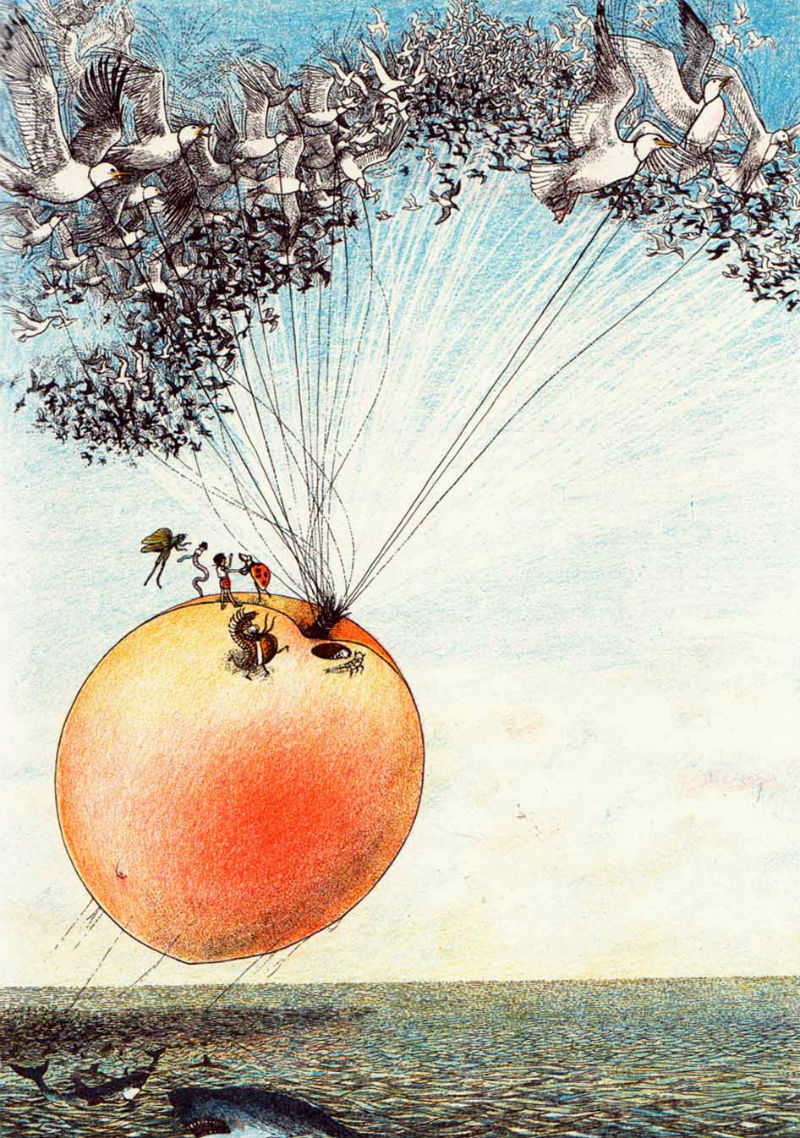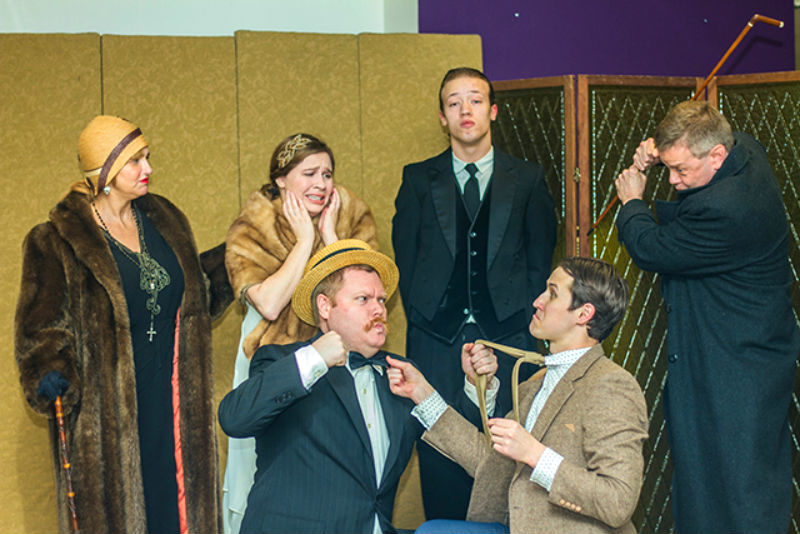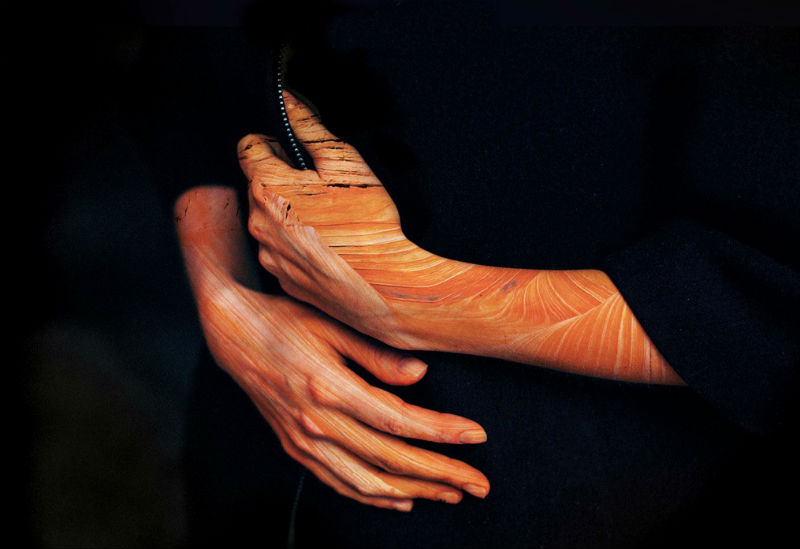Tanya Shaffer and Vienna Teng's musical "The Fourth Messenger" offers a contemporary view of the Buddha

Meditation is meant to focus the mind by clearing away random thoughts. But sometimes meditation may inspire a radical new idea.
Playwright Tanya Shaffer had such an inspiration that led to the creation of The Fourth Messenger, an unusual musical about the Buddha that will be given a concert staging at The Ark on March 14 as a fundraiser for the venue's Spotlight Series.
“The idea came to me on a nine-day silent retreat when I was supposed to be clearing my mind,” she said. “I was thinking about the story of Buddha’s enlightenment, where he sat under a tree and vowed not to get up until he found enlightenment. Then for many days and nights, all the temptations of the world are trying to get him up. And it came to me that would be cool as a song and dance, the temptations standing under a tree and then thinking the whole story would be a musical because it has that scale of a hero’s quest and so I got excited on the retreat and for many hours forgot about my breath and I thought about the musical.”
Encore Theatre's junior production of "James and the Giant Peach" finds a way to make everything better

Perhaps it’s a sign of how trippy a moment we find ourselves in that the work of Roald Dahl seems suddenly, particularly ubiquitous.
For just as a touring production of Roald Dahl’s Charlie and the Chocolate Factory continues its run at Detroit’s Fisher Theater, regional productions of the James and the Giant Peach stage musical -- with a book by Timothy Allen McDonald, and music and lyrics by U-M grads and Oscar, Tony, and Grammy Award winners Benj Pasek and Justin Paul -- have been sprouting up everywhere, including at Dexter’s Encore Theatre.
Encore’s junior production, which begins February 28 and runs for eight performances through March 8, features 22 young performers, ranging in age from eight to 18.
“One of the things I love about [the show] is, not just the chosen family aspect of it, but also, James has this ability to be dealt a terrible hand constantly, and yet he always finds a way to make it better, and always finds the good in things that other are quick to overlook and discard,” said Matthew Brennan, the director of Encore’s production. “The insects, for example, these pests people just want out of their house. … [H]e finds potential in them, and that speaks to something really cool about this story.”
Wordplay and funny fisticuffs highlight "Jeeves Intervenes" at Ann Arbor Civic Theatre

Monty Python didn’t invent the upper-class Brit twit. That honor goes to P.G. Wodehouse with his man-about-town Bertie Wooster.
Wodehouse was a humorist, novelist, short-story writer, Broadway lyricist (teaming with composer Jerome Kern), and man about town in the 1920s when he created Bertie. But he didn’t leave his inept creation without support, because he also created a witty man’s man, the very epitome of the valet, Reginald Jeeves, but always called just Jeeves.
Ann Arbor Civic Theatre will take audiences back to Wodehouse’s fanciful, upper crusty London of the 1920s when it presents Margaret Raether’s stage adaptation of Wodehouse in Jeeves Intervenes, March 12-15 at the Arthur Miller Theatre on the University of Michigan North Campus.
Director Andy Jentzen said it was Wodehouse’s playful use of language and a BBC series that got him interested in Jeeves and Wooster.
Interlocking Parts: Hi Potent C and Dyelow's "War Medicine" highlights the KeepItG Records collective's creative bond

The Ypsi-Arbor hip-hop collective KeepItG Records isn't just a rap crew with a tight handle. The various MCs, producers, musicians, and filmmakers treat KeepItG like a band, with scheduled practices, interlocking their skills and lifting each other up to create audio and visual art.
"The entire KeepItG Records meets and rehearses weekly, and each individual sets up their personal studio time around what’s going on for them at the time being," said rapper Hi Potent C, who has a new album, War Medicine, with KeepItG producer Dyelow. "A lot of the music gets made on the spot, but everyone is always cooking up something on their own time, too. For this specific project, we did a lot of the outlining in person in order to make sure we were sticking to the theme and storyline. From there it made it easier to fill in the blanks separately because we both knew what was needed and expected."
War Medicine is a loose concept record that takes some cues from Kendrick Lamar’s 2012 album, Good Kid, M.A.A.D City, and Prodigy’s 2017 LP, Hegelian Dialectic (The Book of Revelation). Lamar's album recounts his rough teenage years in Compton and Progidy's record is named after the philosophical model that posits thesis, antithesis, then synthesis -- or problem, reaction, solution -- is the way to determine "truth" or "the way."
"The personal ins and outs of living and not only the 'good side,'" is how Hi Potent C describes War Medicine's theme. "At the same time, keeping familiarity with people by showing them how to keep your head up no matter how unfavorable things might be going, because we all need that motivation from time to time."
Dorrance Dance brings musicality to the rhythms of life in tap

I grew up studying and loving ballet and modern dance, but I always felt a little “meh” about tap. But after I watched MacArthur “Genius” award winner Michelle Dorrance perform with New York City Ballet dancer Tiler Peck in the Hulu documentary Ballet Now, I realized how wrong I’d been.
Dorrance brings her tap dance company Dorrance Dance to Ann Arbor on February 21-22 -- and trust me, you should be there. Her company’s style calls back to early black American tap dance and also pushes the art form forward effortlessly. Dorrance Dance will perform three works in Ann Arbor: Jungle Blues, a jazz-age inspired piece; Myelination, the titular ensemble piece; and Three To One, a more experimental work featuring only one dancer in tap shoes.
Ann Arbor-raised Adam Falkner returns with his new poetry collection, "The Willies," and a better sense of his authentic self

Adam Falkner probes the paradox of how hard it is to be yourself sometimes in his new poetry collection, The Willies. One of the poems, “Let’s Get One Thing Halfway Straight,” exposes this emotional labor in the following lines:
The not-so-funny thing about spending a
life proving you aren’t something is that any story that isn’t
the story is survival or more like a brick for laying until the
wall is high enough that you’re safe inside and you wake up
and say whoops whose house is this who did I hurt to get
here and is it too late to call for help.
The real risk lies not in being yourself but rather in suppressing yourself based on people’s opinions or your perceptions of how you’re supposed to be. Falkner finds this identity issue to be a common experience to which many readers relate and also one that is very personal to his life.
“There’s something deeply universal about the idea of being closeted and longing for something bigger than this version of yourself," Falkner said. "That fear associated with who we might become if we don’t ask ourselves who we want to become is a very real thing for everyone.”
Theatrical Poetry: Director Malcolm Tulip discusses his U-M production of Federico García Lorca's "Yerma"

“Theater is poetry that gets up from the page and makes itself human. And when it does that, it talks and shouts, cries and despairs.”
The plot of Yerma -- a story about a woman’s struggles with societal pressures to conceive -- isn’t what makes Lorca’s 1934 tragedy a must-see classic.
What gives it power are the songs, dance, heightened gesture, and visual elements -- the poetry. “Lorca called Yerma ‘a tragic poem in six paintings,’” notes Malcolm Tulip, director of the University of Michigan production running February 20-23 at the Lydia Mendelssohn Theatre.
“Most people assume Yerma is the name of the protagonist, a woman who hasn’t been able to have a child," Tulip says, but the word means “barren” in Spanish and perhaps it isn’t a name at all. Perhaps it “describes this woman’s inner and outer worlds. Yerma here might be a naming of the woman's reluctance or inability to accept the seed of a man who she married out of duty. ... The landscape, like her womb, is uninhabited, possibly uninhabitable."
AADL's "Music Tools Lab: Intro to Guitar Pedals" will give you a hands-on chance to sharpen your ax sounds

You’re at a show. Somewhere.
A band you’ve never heard of is busy hauling their gear onto the stage. The musicians fuss about adjusting amp volume, mic placement, cymbal height.
The group begins its first tune, and the guitar player, after a whisper-quiet intro in D, sends her sparkly white hollow-body Fender Mustang into a fit of feedback and fuzz, improbably multiplying every note she plays, chords modulating and warbling up and down and back and forth through the room as if she held a shattered mirror up to her amp’s speaker.
What just happened?
How does she do it?
Ann Arbor Civic Theatre finds the character-driven "Proof" a good fit on its Second Stage

Theater is sometimes about spectacle: chandeliers that crash before our eyes, ocean liners that seem to sail across a stage, or bloody battles at a Paris barricade.
Alex Duncan was interested in a different kind of theater when she suggested directing David Auburn’s Proof for the Ann Arbor Civic Theatre’s Second Stage. The play’s intimate drama of a troubled young woman and her relationships seemed right for the Civic’s small studio theater and Duncan’s minimalist approach.
“It’s beautiful,” she said. “The language is almost poetic. I’ve always liked dialogue and character-driven things as opposed to, I guess, a little more flash going on. It’s fun digging into the language and working with the characters and figuring out what the actors are going to bring to it and blend that with what I see in the show.”
Duncan, who graduated from Eastern Michigan University with a drama major, directed a Main Stage Civic Theatre production of Arsenic and Old Lace last year and when applications went out for production ideas this year, she proposed Proof. It wasn’t selected for the Main Stage, but in the second round of interviews it was picked for Second Stage.
Cover Your Heads: Angélique Kidjo and others interpret Talking Heads

When Angélique Kidjo first heard Talking Heads' 1980 LP, Remain in Light, she instantly recognized the music's deep debt to Africa. That was in 1983, the year the singer had moved from her native Benin to Paris to study music. It was there that Kidjo began to absorb the city's confluence of Afropop, jazz, Latin, and rock, which she has turned it into a 40-year international career touching on all those styles.
That memory of hearing an American band apply African rhythms to art-rock stuck with Kidjo to such a profound degree that in 2018 she released a song-for-song cover of Remain in Light, which has received raves.
Kidjo turned to another inspiration -- Cuban singer Celia Cruz -- for her 2019 album, Celia, which won a 2020 Grammy. But when Kidjo performs at the Michigan Theater on Sunday, February 16, as part of UMS's current season, she'll highlight the Remain in Light project.
While Kidjo was the first artist to reinterpret all of Remain in Light in the studio, Phish's 1996 Halloween concert featured the jam band playing the album live in its entirety. Covering entire records like that is rare, but interpreting Heads tunes has been happening almost since the band debuted. One of the first was by German pop singer and actress Debbie Neon, whose version of "Psycho Killer" came out in 1979, two years after it appeared on Talking Heads: 77, the band's debut.
The next year, Massachusetts' The Fools released a parody version, "Psycho Chicken," and Heads covers have been nonstop since.
Popular groups such as The Lumineers ("This Must Be the Place (Naive Melody)"), Smashing Pumpkins ("Once in a Lifetime"), Florence and The Machine ("Wild Wild Life"), Umphrey's McGee ("Girlfriend Is Better"), Widespread Panic ("Life During Wartime"), Car Seat Headrest ("Crosseyed and Painless"), Yonder Mountain String Band ("Girlfriend Is Better"), and Phish again ("Cities") have had no fear of Talking Heads music.
The long-running Ann Arbor/Metro Detroit band Frontier Ruckus even recorded a special version of "This Must Be the Place (Naive Melody)" for a fan's wedding.
That song and "Once in a Lifetime" are among the most popular covers, but the clear number one is "Psycho Killer," which has been played by Velvet Revolver, Jason Isbell, Barenaked Ladies, Cage the Elephant, Local H, and more.
The "and more" is what we'll concentrate on below: the five quirkiest Talking Heads covers that I found on YouTube, starting with The Fools' fowl take. Plus, check out Kidjo's videos from her Remain in Light record as well as a special bonus Heads cover by a Chicago vocal legend who is also playing the Michigan Theater on February 15.


































